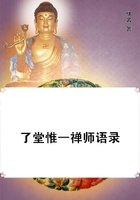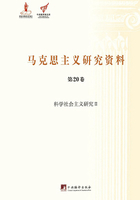10. In the former section is showed that elective kings, that exercise their sovereignty for a time, which determines with their life, either are subjects and not sovereigns; and that is, when the people in election of them reserve unto themselves the right of assembling at certain times and places limited and made known; or else absolute sovereigns, to dispose of the succession at their pleasure; and that is, when the people in their election hath declared no time nor place of their meeting, or have left it to the power of the elected king to assemble and dissolve them at such times, as he himself shall think good. There is another kind of limitation of time, to him that shall be elected to use the sovereign power (which whether it hath been practised anywhere or not, I know not, but it may be imagined, and hath been objected against the rigour of sovereign power), and it is this: that the people transfer their sovereignty upon condition. As for example: for so long as he shall observe such and such laws, as they then prescribe him. And here as before in elected kings, the question is to be made, whether in the electing of such a sovereign, they reserved to themselves a right of assembling at times and places limited and known, or not; if not, then is the sovereignty of the people dissolved, and they have neither power to judge of the breach of the conditions given him, nor to command any forces for the deposing of him, whom on that condition they had set up; but are in the estate of war amongst themselves, as they were before they made themselves a democracy; and consequently: if he that is elected, by the advantage of the possession he hath of the public means, be able to compel them to unity and obedience, he hath not only the right of nature to warrant him, but also the law of nature to oblige him thereunto. But if in electing him, they reserved to themselves a right of assembling, and appointed certain times and places to that purpose, then are they sovereign still, and may call their conditional king to account, at their pleasure, and deprive him of his government, if they judge he deserve it, either by breach of the condition set him, or otherwise. For the sovereign power can by no covenant with a subject, be bound to continue him in the charge he undergoeth by their command, as a burden imposed not particularly for his good, but for the good of the sovereign people.
11. The controversies that arise concerning the right of the people, proceed from the equivocation of the word. For the word people hath a double signification. In one sense it signifieth only a number of men, distinguished by the place of their habitation; as the people of England, or the people of France; which is no more, but the multitude of those particular persons that inhabit those regions, without consideration of any contracts or covenants amongst them, by which any one of them is obliged to the rest. In another sense, it signifieth a person civil, that is to say, either one man, or one council, in the will whereof is included and involved the will of every one in particular; as for example: in this latter sense the lower house of parliament is all the commons, as long as they sit there with authority and right thereto; but after they be dissolved, though they remain, they be no more the people, nor the commons, but only the aggregate, or multitude of the particular men there sitting; how well soever they agree, or concur, in opinions amongst themselves; whereupon they that do not distinguish between these two significations, do usually attribute such rights to a dissolved multitude, as belong only to the people virtually contained in the body of the commonwealth or sovereignty. And when a great number of their own authority flock together in any nation, they usually give them the name of the whole nation. In which sense they say the people rebelleth, or the people demandeth, when it is no more than a dissolved multitude, of which though any one man may be said to demand or have right to something, yet the heap, or multitude, cannot he said to demand or have right to any thing. For where every man hath his right distinct, there is nothing left for the multitude to have right unto; and when the particulars say: this is mine, this is thine, and this is his, and have shared all amongst them, there can be nothing whereof the multitude can say: this is mine; nor are they one body, as behoveth them to be, that demand anything under the name of mine or his; and when they say ours, every man is understood to pretend in several, and not the multitude. On the other side, when the multitude is united into a body politic, and thereby are a people in the other signification, and their wills virtually in the sovereign, there the rights and demands of the particulars do cease; and he or they that have the sovereign power, doth for them all demand and vindicate under the name of his, that which before they called in the plural, theirs.
12. We have seen how particular men enter into subjection, by transferring their rights; it followeth to consider how such subjection may be discharged. And first, if he or they have the sovereign power, shall relinquish the same voluntarily, there is no doubt but every man is again at liberty, to obey or not; likewise if he or they retaining the sovereignty over the rest, do nevertheless exempt some one or more from. their subjection, every man so exempted is discharged. For he or they to whom any man is obliged, hath the power to release him.
13. And here it is to be understood: that when he or they that have the sovereign power, give such exemption or privilege to a subject, as is not separable from the sovereignty, and nevertheless directly retain the sovereign power, not knowing the consequence of the privilege they grant, the person or persons exempted or privileged are not thereby released. For in contradictory significations of the will (Part I. chap. XIII, sect. 9), that which is directly signified, is to be understood for the will, before that which is drawn from it by consequence.
14. Also exile perpetual, is a release of subjection, forasmuch as being out of the protection of the sovereignty that expelled him, he hath no means of subsisting but from himself.
Now every man may lawfully defend himself, that hath no other defence; else there had been no necessity that any man should enter into voluntary subjection, as they do in commonwealths.
15. Likewise a man is released of his subjection by conquest; for when it cometh to pass, that the power of a commonwealth is overthrown, and any particular man, thereby lying under the sword of his enemy yieldeth himself captive, he is thereby bound to serve him that taketh him, and consequently discharged of his obligation to the former. For no man can serve two masters.
16. Lastly, ignorance of the succession dischargeth obedience; for no man can be understood to be obliged to obey he knoweth not whom.















